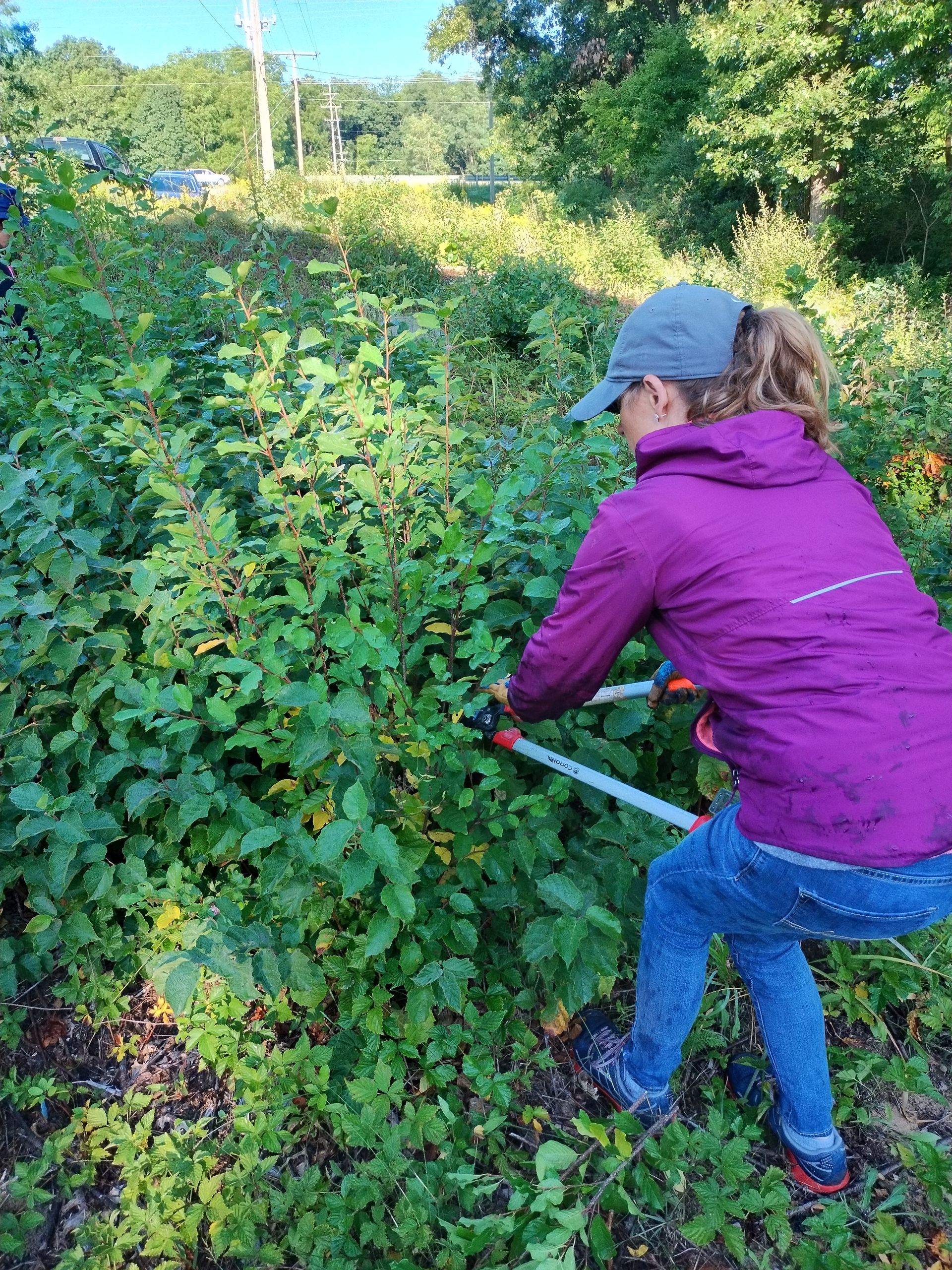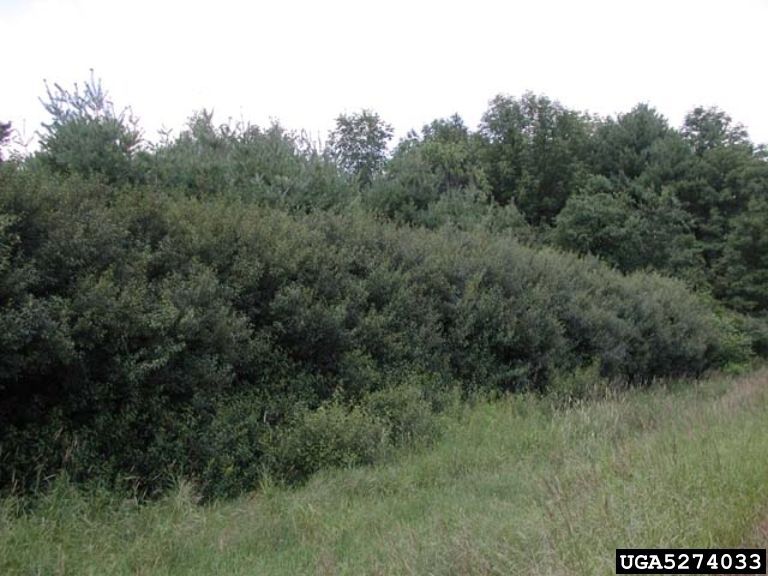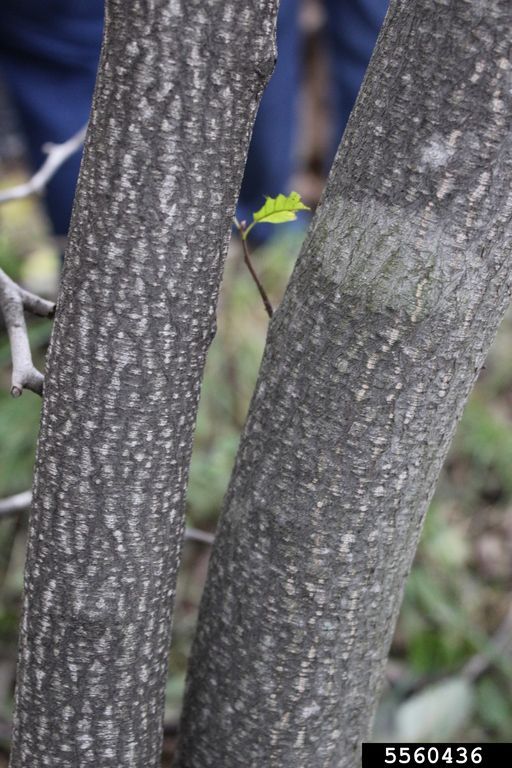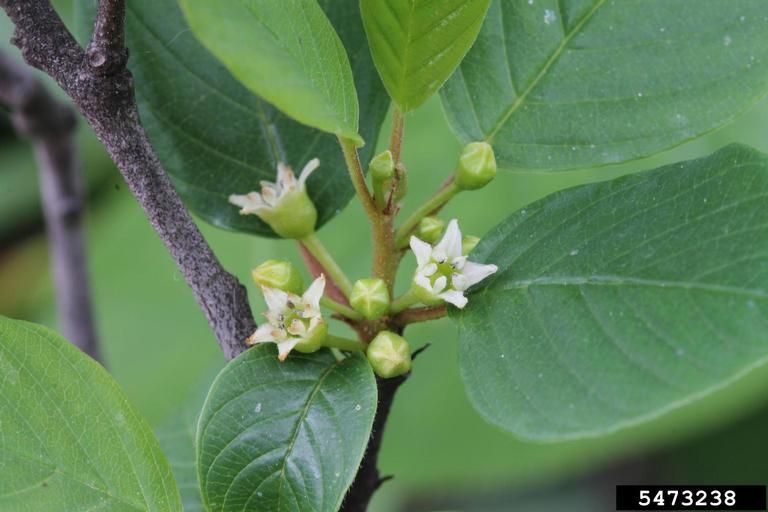This project will work to enhance the habitat within Michigan’s first urban game area in celebration of National Public Lands Day. Volunteers will meet at the Hampton Lake trail entrance off Centre Ave at Gourdneck State Game Area in Portage, MI (42.193777, -85.633745). Closed-toed, waterproof shoes and long pants are recommended. This event will take place rain or shine, except in the case of severe weather, so please dress accordingly. Volunteers should plan to be outside for the duration of the event. Necessary equipment, including work gloves and loppers will be provided. Registered volunteers will receive a free lunch and a volunteer appreciation gift. We welcome groups of friends and family alike looking to give back to the local ecosystem and protect Gourdneck State Game Area from the expansion of this woody invasive.
Image (right): Volunteer from the 2023 project working to remove a plant at Gourdneck State Game Area.







